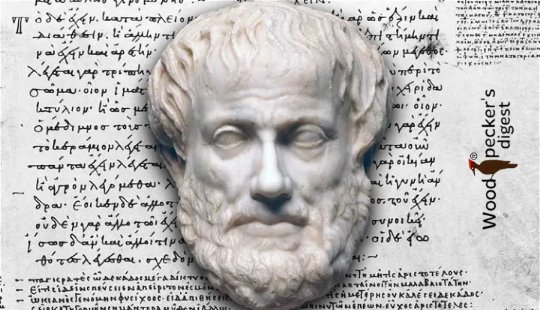
Aristotle’s Categories are fundamental to logic because they provide the tools and terms for logical analysis and discourse.
By Natalie Noland
BS Politics, Philosophy, and Economics.
Lusaka, April 18 – Aristotle’s Categories is a foundational philosophical work that provides a framework for understanding existence and engaging in classification. The text consists of ten categories – substance, quantity, quality, relation, place, time, position, state, action, and passion. Aristotle uses these ten categories to formulate and discuss the different aspects of being. But these categories have also impacted logic, the philosophical study of reasoning. Here are five ways they have been fundamental to the field.
Also Read: Towards a nation of people with independent minds!
◾Aristotle’s Categories and Logical Analysis.
The main use of logic is investigating how conclusions follow from premises in formal arguments. For example, if you have an argument consisting of the premises “Jane does not like any sweet things” and “Candy is sweet,” the conclusion that follows would be “Jane does not like candy.” This seems intuitive, but it is only because of Aristotle’s categories that such an argument can be understood. The term “candy” can be understood under Aristotle’s definition of substance, the entity on its own. “Sweet” is a quality, a property that characterizes a substance. Aristotle’s categories provide a structured approach for analyzing the composition of arguments, which allows logicians to make statements about the arguments’ validity and soundness.
◾They Provide a Starting Point for Prediction.
Aristotle’s distinction between substance and accidents forms the foundation for the theory of predication in logic. In his work Categories, Aristotle defined substance as something that exists independently; it is the primary holder of properties and attributes. On the other hand, accidents are properties or qualities attributed to a substance, but their existence relies on that substance, and they do not function independently. This clarification between the two allows logicians to assess the logical coherence behind premises. It gives them the tools to break the premise down into a subject (the substance) and a predicate (the accident) or to build a premise with a subject and a predicate. This process is known as predication, and it plays a critical part in forming propositions and evaluating their truth values.
◾His Categories Paved the Way for Categorical Syllogisms.
Categorical syllogisms are deductive arguments consisting of two premises and a conclusion. The first premise is the major: It makes a general statement and usually contains the predicate in the conclusion. The second premise is the minor: It makes a specific statement about a particular instance and usually contains the subject of the conclusion. So, for example, you might have:
P1: Some dogs are friendly.
P2: All dogs are mammals.
C: Some mammals are friendly.
“Friendly” in premise one is the predicate in the conclusion. “Mammals” is the subject in premise two.
The goal is to establish a logical relationship between the three. Categorical syllogisms are at the core of logic and were extensively studied by Aristotle. His category of relation – which describes how substances relate to each other – is especially important because it provides the framework connecting the premises and the conclusion.
Also Read: Africa’s candidate for Secretary General of the International Police is a Zambian!
◾Aristotle’s Work Has Been Integrating into Modern Logic.
Modern logic differs from the classic logic that Aristotle knew and worked with. It is more formalized and symbolic, deals with modalities, includes metalogical concepts, and encompasses non-traditional logic – such as fuzzy and paraconsistent logic. Perhaps the biggest departure from the logic Aristotle knew is the mathematical influence over modern logic and, in turn, modern logic’s influence over computer science.
As a fourth-century BCE philosopher, Aristotle and his Categories predate modern formal logic systems. But although the field of logic has changed quite a bit since Aristotle began his studies, the work he accomplished has been able to be integrated into modern logic rather than be cast aside. His principles continue to inform and enrich logical discourse, furthering his influence in the field.
◾Categories Provide Simplification and Clarity of Logical Terms.
Aristotle’s categories have given logicians the ability to do a lot of work within their field – from the most basic level of creating a premise to ongoing, complex work in formal logic – but they’ve also given logicians the ability to talk about their work. Aristotle’s classification of terms into different categories helps to clarify the meaning and usage of logical terms. By being a categorization system based on functional status (substance, quality, relation, etc.), Aristotle’s taxonomy provides a method for understanding the scope and applicability of terms within logical discourse. This clarity is essential for communication, argumentation, and a coherent system, enhancing precision in reasoning and discussion.
Also Read: Don’t throw away watermelon seeds! By Dr. Chitalu Chilufya.
“Because they are full of nutrients like proteins, essential fatty acids, magnesium, and zinc; they may provide surprising benefits to our body, not to mention their ability to improve male fertility!”
About The Author: Natalie is a freelance writer from Rhode Island. She has a BS in Politics, Philosophy, and Economics from Northeastern University with a minor in Writing. Her academic interests include ancient philosophy, logic, and game theory. She enjoys reading, watching movies, and kayaking in her spare time.
Remember to follow Woodpecker’s Digest for news analyses and commentaries on topical issues of national interest and for articles on personal development and health! Yes! Knowledge does make a man unfit to be a slave!
©2024 Woodpecker’s Digest.
Putting news into perspective








